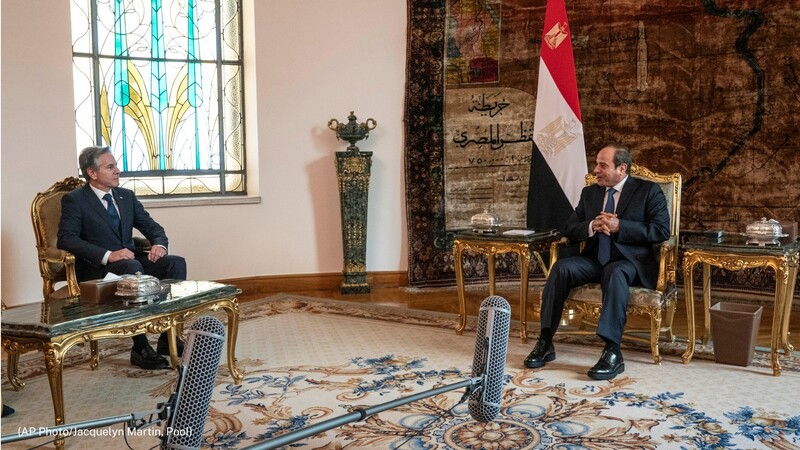Top US diplomats spent the weekend shuttling between Middle Eastern capitals in a bid to stop the war between Israel and Hamas from escalating into a broader regional conflict.
What happened: President Joe Biden’s top security advisor Jake Sullivan said the US had privately warned Iran to stay out of the conflict between Israel and Hamas.
- Meanwhile, Secretary of State Antony Blinken crisscrossed the region for meetings with leaders of Egypt, Saudia Arabia, and the United Arab Emirates.
- The US also announced it would send a second aircraft carrier group to the eastern Mediterranean.
Why it’s happening: Western leaders are concerned that the looming Israeli ground invasion of Gaza could draw Iran — and Hezbollah, the Iran-backed Lebanese militant group — into the war.
- Iran, which funds Hamas, warned Israel that it will intervene in the conflict if it continues, according to reporting by Axios, either directly or through allied militant groups.
Why it matters: The human and economic cost of the war will grow significantly if it turns into a larger regional conflict.
- Bloomberg Economics forecast that a direct war between Israel and Iran would push the price of a barrel of oil up by US$64, cost the global economy around US$1 trillion, and increase the inflation rate by 1.2 points.
What’s next: The Israel Defense Forces have called up an unprecedented 360,000 reservists to prepare to fight both in Gaza and Lebanon should the war escalate this week.
